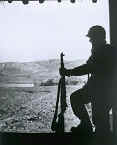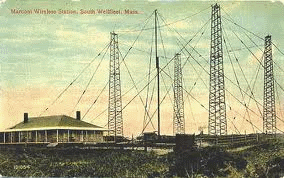WebMaster's Corner July 2017

July is the seventh month of the year in the Julian and Gregorian Calendars and one of seven months with the length of 31 days. It is, on average, the warmest month in most of the Northern hemisphere (where it is the second month of summer) and the coldest month in much of the Southern hemisphere (where it is the second month of winter). The second half of the year commences in July. In the Southern hemisphere, July is the seasonal equivalent of January in the Northern hemisphere.
July starts on the same day of the week as April in a common year, and January in leap years. In a common year no other month ends on the same day as July, while in a leap year July ends on the same day of the week as January.
In the Northern Hemisphere:
- Dog days begin in early July, when the hot sultry weather of summer usually starts.
- Summer school is under way for many students.
- Spring lambs, born in late winter or early spring, are usually sold before July 1.
Previously, it was called Quintilis in Latin, since it was the fifth month in the ancient Roman calendar, which traditionally set March as the beginning of the year before it was changed to January at the time of the decemvirs about 450 BC. The name was then changed by Augustus to honor Julius Caesar, who was born in July. In the ancient Roman calendar the ides of July fell on the 15th day of the month.

The gemstone for July is
the Ruby

The flower for July is
the Larkspur .
Now, About July in History:

On 4 July1776 – our great nation was born. This year we celebrate this nation’s 241st birthday on Independence Day.

Other important occasions are also celebrated in July.
First, a few important military events:
1 July 1863 – the Army of Northern Virginia and the Army of the Potomac, were gathered in late June in and around the town of Gettysburg, The great battle, named after the town, began with a small fight between the forces of Confederate Major General Buford and Union General Ambrose Powell Hill in front of Cemetery Hill. The battle went on for two more days and by the evening of 3 July the Confederate army began its retreat to Virginia. During the costly three days the Union casualties were: 3,070 soldiers killed, 14,497 wounded, and 5,434 captured or missing. The Confederates suffered 2,592 deaths, 12,706 wounded, and 5,150 captured or missing. Gettysburg had important psychological effects, demoralizing the South because they never again were able to carry the war that far north.
1 July 1916 – Battle of the Somme (July-Nov 1916) began at 0730 hours when the British Expeditionary Forces’ leading battalions went “over the top.” The troops had been told to expect a “piece of cake” as most of the opposing force had been killed by the prior week-long Artillery barrage. The British planners were dead wrong; the British Tommies offered unspeakable sacrifice—an estimated one million men died before the battle ended without consequence in November. (French 195,000; British 420,000; and German 650,000.)
1 July 1920 - The Finance Department was created by law. It became the Finance Corps in 1950.
2 July 1926 - The Air Corps Act was enacted. The legislation changed the name of the Air Service to the Air Corps, "thereby strengthening the conception of military aviation as an offensive, striking arm rather than an auxiliary service. See more at this URL: http://www.airforcehistory.hq.af.mil/PopTopics/aircorpsact.htm
15 July 1918 - During the Battle of the Marne in World War I, German General Erich Ludendorff launched Germany's fifth, and last, offensive to break through the Chateau-Thierry salient. However, the Germans were stopped by American, British and Italian divisions. On July 18, General Foch, Commander-in-Chief of the Allied troops, launched a massive counter-offensive. The Germans began a retreat lasting four months until they requested an armistice in November.
25 July 1945 – General Thomas T. Handy, Acting Chief of Staff of the Army, orders General Carl Spaatz, CG, USA Strategic Air Forces, to “deliver its first special bomb as soon as weather will permit visual bombing after about 3 August 1945 on one of the targets: Hiroshima, Kokura, Niigata and Nagasaki.”




27 July 1775 - First U.S. Army Paymaster is appointed in a letter from John Adams to James Warren (a civilian):
Dear Sir
The Congress have this Day made an establishment of an
Hospital and appointed Dr Church Director and Surgeon and have
done themselves the Honour of unanimously appointing the
Honourable James Warren Esqr (sic) of Plymouth in the Massachusetts Bay
Paymaster General of the Army. The Salary of this officer is one
hundred Dollars per Month It is an office of high Honour and great
Trust.

27 July 1953 - Korean War cease-fire signed by Lieutenant General Nam Il and Lieutenant General William K. Harrison at 1000 hours at Panmunjom. About 12 hours later the fighting ended.
28 July1914 – Austria-Hungary declares war on Serbia. The Great War (World War I) begins — a global war eventually involving 32 nations. The aggregate direct war costs of all the belligerents amounted to about $186 billion. Casualties in the land forces amounted to more than 37 million; in addition, close to 10 million deaths among the civilian populations were caused indirectly by the war.
Other Occasions in July
1 July 1862 - President Abraham Lincoln signed the first income tax bill, levying a 3% income tax on annual incomes of $600-$10,000 and a 5% tax on incomes over $10,000. Also on this day, the Bureau of Internal Revenue was established by an Act of Congress.

2 July 1776 - The Continental Congress passed a resolution saying that "these United Colonies ought to be, Free and Independent States."
4 July 1776 - The Continental Congress approved a Declaration of Independence from Great Britain.
4 July 1882 - The "Last Great Buffalo Hunt" began on Indian reservation lands near Hettinger, North Dakota as 2,000 Teton Sioux Indians in full hunting regalia killed about 5,000 buffalo. By this time, most of the estimated 60-75 million buffalo in America had been killed by white hunters who usually took the hides and left the meat to rot. By 1883, the last of the free-ranging buffalo were gone.
8 July 1776 - In Philadelphia, Col. John Nixon gave the first public reading of the Declaration of Independence.
8 July 1796 - The U.S. State Department issues the first passport.
9 July 1776 - In New York, Gen. George Washington read the Declaration of Independence to his troops.
12 July 1960 - Etch-a-Sketch goes on sale.

13 July 1898 - The radio is patented by Guglielmo Marconi. Later, it turned out that Nikola Tesla should have been credited with being the first person to patent radio technology; the Supreme Court overturned Marconi's patent in 1943 in favor of Tesla.

16 July 1999 - John F. Kennedy Jr. dies in a plane crash off Martha's Vineyard.
19 July 1814 - Samuel Colt, invented the revolver.

20 July 1715 - The Riot Act took effect in Britain. If a dozen or more persons were disturbing the peace, an authority was required to command silence and read the following, "Our sovereign Lord the King chargeth and commandeth all persons, being assembled, immediately to disperse themselves, and peaceably to depart to their habitations, or to their lawful business, upon the pains contained in the act made in the first year of King George, for preventing tumults and riotous assemblies. God save the king." Any persons who failed to obey within one hour of this public reading of the riot act were to be arrested.
20 July 1969 - At exactly 4:18 p.m. EDT, astronauts Buzz Aldren and Neil Armstrong completed a 384,000-kilometer journey as the Lunar Module touched down on the moon at the Sea of Tranquility. The American public then heard the first words ever transmitted from the moon, “Houston, the Eagle has landed.”

26 July 1944 - The Army began desegregating its training camp facilities. Black platoons were then assigned to white companies in a first step toward battlefield integration. However, the official order integrating the armed forces didn't come until July 26, 1948, signed by President Harry Truman.
29 July 1928 - Walt Disney's "Steamboat Willie" premiered.
Critics said it was a really Mickey Mouse performance!
July TAPS
Let us take this opportunity to remember any members of our Finance Family whose passing was a year-ago July passing.
| Name | Rank | Deceased |
|---|---|---|
| DRAKE, MICHAEL L. | LTC | 7/29/2016 |
| FRASCATORE, JAMES L. | MAJ | 7/23/2016 |
| GRISSOM, THOMAS C. | COL | 7/17/2016 |
| HUNDLEY, KENNETH M. | MSG | 7/16/2016 |
| PURCELL, DONALD W. | SFC | 7/17/2016 |
| TODD, RONALD E. | MAJ | 7/14/2016 |
New Members Added to the Roster Last Month
| New Member - SGM ROBERT J (Bob) KERSTETTER |
| New Member - COL CARL R BROADHURST |
Bulletin Board Entries last Month
| Posted | Type | Headline |
|---|---|---|
| 6/30/2017 | Bulletin | Gander Memorial Update #8 |
| 6/29/2017 | Bulletin | 101st Finance Gander Crash Memorial Update # 7 |
| 6/29/2017 | Bulletin | The Marine |
| 6/29/2017 | Bulletin | FMNet Message 29 JUN 2017 |
| 6/28/2017 | Bulletin | New Member - COL CARL R BROADHURST |
| 6/23/2017 | Bulletin | Save the Date - Commandant Retiring |
| 6/23/2017 | Bulletin | FMNET Message 22 OCT 2017 |
| 6/21/2017 | Bulletin | MILO PFANDER (data change) |
| 6/19/2017 | Bulletin | 34th National Retiree Military Golf Classic |
| 6/19/2017 | Bulletin | FMNET Message 15 JUN 2017 |
| 6/9/2017 | Bulletin | FFMNet Message 9 JUN 2017 |
| 6/5/2017 | Bulletin | Ms. VAUGHN, PAT to TAPS |
| 6/5/2017 | Bulletin | New Member - SGM ROBERT J (Bob) KERSTETTER |
| 6/2/2017 | Bulletin | Honoring David Hannam |
| 6/1/2017 | Bulletin | Michael J Schroeder (data change) |
| 6/1/2017 | Bulletin | FMNET Message 1 JUN 2017 |
And, Finally, ...
Reunion 2018
Mark your calendars for 10-14 OCT 2018, when we kick off our 2018 Reunion in Albuquerque Check out the details on the Reunion Page.
Reunion 2020
Troy and Eunice Clay have graciously offered to host the 2020 Reunion in Charleston, SC. When the time comes, they will be looking for volunteers to help make the reunion the success we knoe it will be. Thanks to both of you for stepping up.
Robby Robson, The Webmaster
